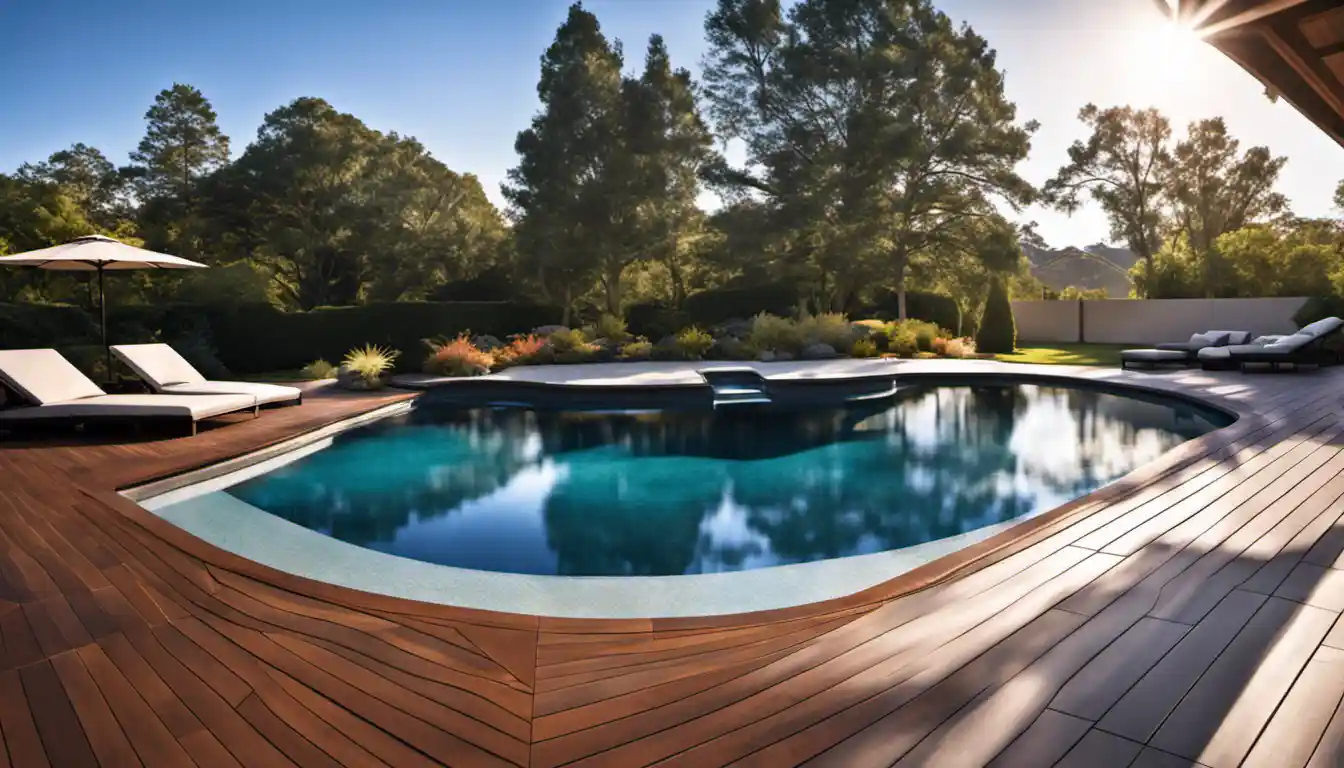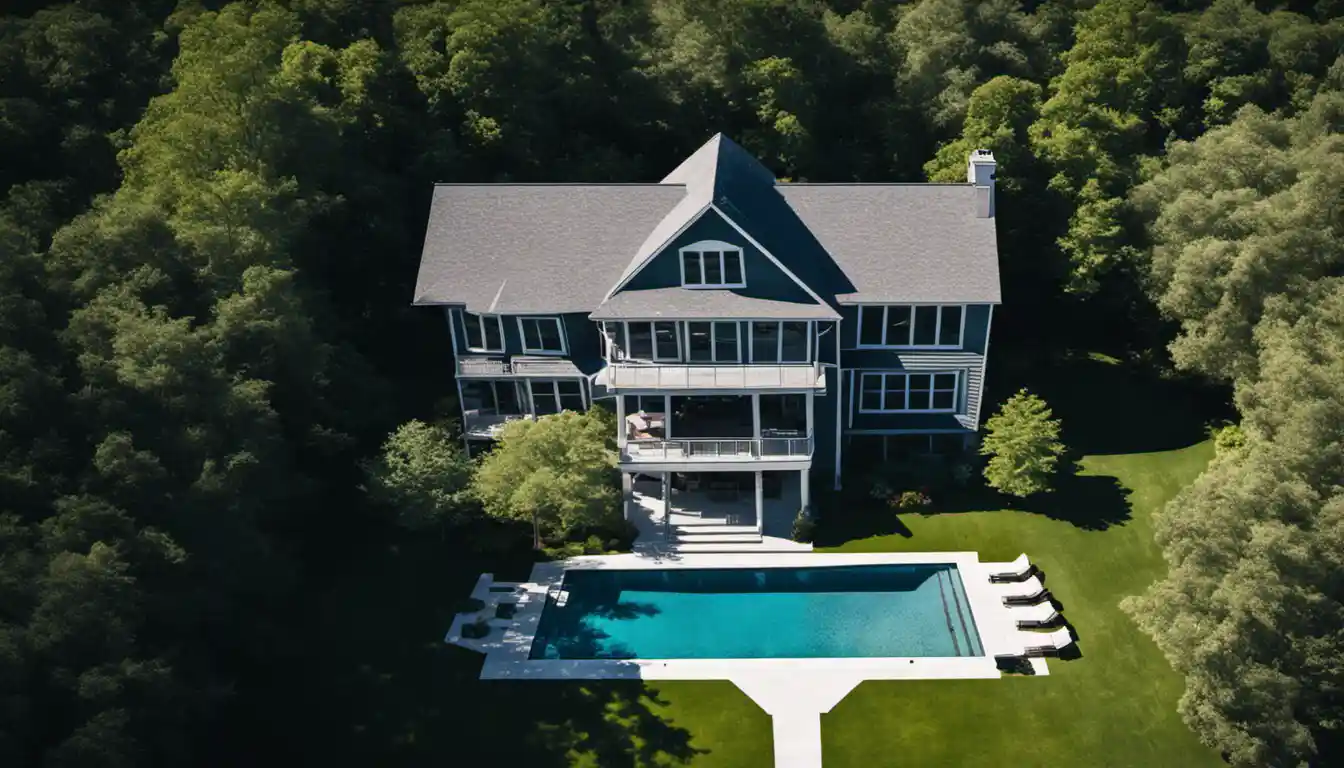Introduction to Solar Pool Heaters
There are primarily two types of solar pool heaters: solar panel heaters and solar sun rings. Solar panel heaters are installed on the roof and heat the water as it is pumped through the system, while solar sun rings float on the pool surface to absorb and transfer heat directly to the water. Both types aim to increase pool temperatures using solar energy.
As more and more homeowners are making green choices nowadays, solar pool heaters have become a popular choice, not only due to their cost-saving benefits but also because they lower our carbon footprint. So, kick back, grab a cup of coffee, and let’s dive into the world of eco-friendly pool heating.
The benefits of Solar Pool Heaters
Solar pool heaters are remarkably efficient and generate heat for your pool without increasing your electricity bills. In my years of experience evaluating different types of pool heating systems, I’ve found that the most pronounced benefit of solar pool heaters has to be their eco-friendly nature. They harness the energy of the sun, a clean and renewable source, making solar heaters the greenest way to keep your pool warm and inviting.
How Solar Pool Heaters work
Sunlight is a natural energy source, and it’s free. The mechanisms behind the “types of solar swimming pool heaters” we’ll explore derive their function from this basic truth. The operation of these systems can be quite simple: Water from your pool is circulated through solar collectors, which are heated by the sun. The water then flows back into your pool, effectively raising the overall temperature. This is an ongoing process that works whenever the sun shines, even on cooler days.
Different Types of Solar Pool Heaters
Alright, let’s get down to the brass tacks. There are various types of solar pool heaters out there, each with its pros and cons.
High-Density Solar Heater
This type of heater is designed for maximum heat transfer, utilizing a high-density solar core to reach optimal pool temperatures. These are great for larger pools where significant heat absorption is required.
Universal Solar Panel Heating Kit
Commonly used due to its easy installation and compatibility with most pool set-ups, the Universal Solar Panel Heating Kit is a versatile choice for many homeowners.
Curve Pool Heater

The unique design of the Curve Pool Heater absorbs maximum sunlight throughout the day, making it an effective option for maintaining consistent pool temperatures.
Solar Dome Swimming Pool Heater
The Solar Dome operates using your pool pump to push water through its solar-heated dome structure. This simple mechanism heats and recirculates the water back into your pool.
Universal Solar Pool Heater
A robust system that capitalizes on efficient, direct solar heating. It has applications for both in-ground and above-ground pools.
Solar Mat for Above Ground Swimming Pools
Perfect for above-ground pools, these mats capture sunlight to heat the pool water as it circulates through the mat’s surface.
Solar Pool Sun Heater Panel
These panels can be mounted on a roof, fence, or even laid out on the ground to heat water before returning it to your pool.
Circular Solar Cover Heaters
In addition to limiting evaporation and debris entry, circular solar covers double up as heaters, absorbing sunlight and transferring this heat to your pool.
Considerations when Choosing a Solar Pool Heater
Picking out the right heater for your pool can be overwhelming. Here’s what you need to consider when exploring the “types of solar pool heaters.”
Pool Type:

Knowing whether your pool heart lies with an in-ground or above-ground pool will drastically narrow down your options. Some heaters are designed for specific pool types.
Pool Size:
The larger your pool, the more significant heating needs to be. You’ll need a solar pool heater (or couple of them) that can cope with the size of your pool within reasonable time frames.
Mounting Type and Installation:
Some solar heaters require mounting on roofs or walls, while others do not need mounting at all. Make sure the heater fits your situation.
Efficiency and Temperature:
Not all solar pool heaters are as efficient as others. Depending on the desired pool temperature, you may need a certain type of solar pool heater.
Material and Durability:
Durability is a crucial factor, especially if you live in an area prone to severe weather conditions. Prioritize models that boast a solid, weather-resistant construction.
For more on the various equipment used for a solar pool heater system, check out this detailed guide on solar panels for pools.
Sizing and Siting a Solar Pool Heater
Evaluating Your Site’s Solar Resource

The first step here is typically assessing your location’s solar potential, bearing in mind trees or structures that could obstruct sunlight access to your pool heater.
Collector Orientation
It’s usually best to install your heat collector in a south-facing direction to maximize sun exposure.
Collector Tilt
Tilting your collector at an angle equivalent to your latitude ensures optimal year-round performance.
Determining the Efficiency of Solar Pool Heaters
Including System Costs
While upfront costs may seem high, remember to factor in the savings you’ll reap over time from a significantly lower or non-existent power bill.
Installation and Maintenance of Solar Pool Heaters
Most solar pool heaters can be easily installed and require minimal maintenance. But it’s worth noting that professional installation may be necessary for larger or more complex systems.
Common FAQs About Solar Pool Heaters
In my two decades as a solar energy expert, I’ve heard a wealth of valid questions from customers, such as:
-
The number of solar panels required to heat a swimming pool: This is dependent on factors like pool size, desired temperature, and geographical location.
-
The appropriate size of tubing for a solar pool heater: For maximum efficiency, a half-inch tube diameter is typically ideal for most residential pools.
-
The warmth of solar-heated pools during winter: Even during winter, solar pool heaters can maintain pleasant pool temperatures, provided the heaters are properly sized, and installation guidelines are followed.
-
The lifespan of pool solar heating: With regular maintenance and care, solar pool heaters can last around 20 years.
-
Preventing a solar pool heater from freezing: It’s crucial to drain your system when not in use during freezing conditions to avoid freeze damage.
That wraps up an in-depth look at the many types of solar pool heaters and how they contribute to an eco-friendly swimming experience. Happy swimming, and remember, the sun is your power source!



